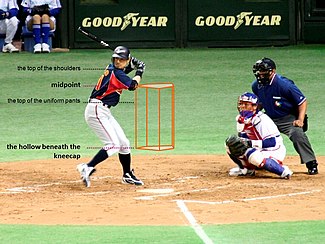Why Does Baseball Have Umpires And Not Referees? Exploring the Role and Importance in the Game
Baseball employs umpires to enforce the rules and oversee the play. Umpires maintain the order and call the plays in real-time on the field.
Baseball, a sport steeped in tradition, has always relied on umpires for governance and decision-making during games. Their role is integral to the integrity of the sport, ensuring that the rules are followed and fairness is upheld. Unlike referees typically seen in sports like basketball or soccer, umpires are iconic to baseball, stationed at strategic points around the field to monitor the action closely.
They make judgment calls on pitches, hits, and player conduct, impacting the outcome of every pitch and play. The use of umpires in baseball adds a human element to the game, accepting that interpretation is part of the sport’s nature. This traditional term ‘umpire’ not only resonates with fans but also adds to the unique identity of baseball, distinguishing it from other team sports.

Credit: en.wikipedia.org
The Origin Of ‘umpire’ In Baseball
The term umpire roots deeply in baseball’s history. Understanding why the sport uses ‘umpire’ instead of ‘referee’ offers a fascinating glimpse into baseball’s origins. This term isn’t just a title; it’s a nod to the game’s unique past and its cultural significance.
Historical Context
Baseball’s early days required a figure of authority on the field. The umpire emerged as this key figure. In the mid-19th century, as baseball rapidly gained popularity, a need for formal rules and a fair arbiter became increasingly clear. The title ‘umpire’ was adopted from the Old French word ‘nompere’, which means “not equal” or “not a peer”, signifying an impartial role to oversee the game’s fairness without favoring either team.
Comparative Terms In Other Sports
Different sports use distinctive terms for their officials, reflecting history and the nature of each game. In contrast to baseball, sports like soccer, basketball, and rugby use the term ‘referee’. This distinction relates to their British origins, where ‘referee’ stems from the word ‘reference’, indicating a person who resolves disputes. Each sport’s choice of term reflects its own heritage and the evolution of its rules and gameplay over time.
Roles And Responsibilities In Baseball
The heart of baseball lies in its rules and fairness, and this is where umpires shine. They uphold the game’s integrity, ensuring each play abides by the book.
Home Plate Umpire Duties
The home plate umpire holds the game’s reins, making critical decisions that shape its flow. These duties include:
- Calling balls and strikes – They decide if pitches are within the strike zone.
- Ruling plays at the plate – Safe or out verdicts at home come from them.
- Managing the game – They control game pace, enforce rules, and maintain order.
Field Umpires’ Tasks
Field umpires are like the game’s eyes, capturing every moment beyond the plate. Let’s explore their tasks:
| Task | Description |
|---|---|
| Overseeing base decisions | They ascertain runners’ safe or out status on base paths. |
| Outfield plays | Calls on catches and boundary plays rest on their shoulders. |
| Game rules enforcement | They ensure fair play and adherence to the rules across the field. |
Umpires Vs. Referees: A Terminology Battle
Welcome to the ‘Umpires vs. Referees: A Terminology Battle’ in the world of sports. In baseball, the game is presided over by umpires. Often, people wonder why the term ‘umpire’ is used instead of ‘referee’. This section peers into the nuanced distinctions and the roles denoted by these terms within the sport.
Semantic Differences
In any sport, the game’s rules enforcers are crucial. Baseball calls them umpires, while other sports use referees. This isn’t just a random choice; it’s rooted in tradition and the specific duties associated with the role. Umpires denote a sense of final authority, a concept integral to baseball’s officiating heritage. ‘Referee’, on the other hand, signifies a mediator, often associated with sports like basketball and soccer.
Authority On The Field
Umpires in baseball wield a unique blend of power and responsibility. A chief umpire or ‘crew chief’ leads the crew, reflecting a hierarchy of power. Their decisions are seen as final and seldom contestable. This commanding presence is a key aspect of the sport’s culture and represents a higher level of on-field sovereignty not commonly found under the title of ‘referee’.
| Sport | Official | Authority Level |
|---|---|---|
| Baseball | Umpire | High |
| Basketball | Referee | Medium |
| Soccer | Referee | Medium |

Credit: www.amazon.com
Training And Qualifications For Baseball Officials
The world of baseball is both fast-paced and steeped in tradition, where decisions made in the blink of an eye can change the course of a game. This intensity and precision is why the training and qualifications for baseball officials are rigorous and thorough. Baseball umpires play a crucial role in maintaining the integrity and smooth flow of the game. Let’s delve into what it takes to make it behind the plate as an umpire.
Path To Becoming An Umpire
Becoming a baseball umpire requires dedication, starting with a foundational education. Aspiring umpires often begin their journey at professional umpire training schools. These schools are approved by Major League Baseball (MLB) and run for several weeks, focusing on the rules of the game, positioning, mechanics, and game management.
- Complete umpire training school
- Gain experience in amateur leagues
- Attend advanced courses
- Enter the minor league system
- Work towards a Major League appointment
Candidates who excel may get a chance to further their careers in the minor leagues, with the ultimate goal of reaching the majors.
Skills And Proficiencies Required
Umpires must have a unique set of skills to handle the pressures of the game. They need excellent vision and hearing to make accurate calls. Knowledge of rules is a given.
| Skill | Importance |
|---|---|
| Communication | Essential for explaining decisions |
| Decision-making | Crucial for making split-second calls |
| Physical fitness | Important for maintaining stamina |
| Concentration | Key for staying focused during games |
In addition to physical attributes, umpires must exhibit impartiality and a firm understanding of sportsmanship. As baseball continues to evolve, umpires also need to embrace technology, as video replay becomes an integral part of the game.
The Evolution Of Umpiring In Baseball
The Evolution of Umpiring in Baseball tracks the journey of how baseball’s officiating has shaped the game we know today. Umpires stand as custodians of the rules, ensuring fair play and order on the field. Unlike other sports with referees, baseball’s affinity for ‘umpires’ is entwined with its history and the unique flow of the game. Let’s delve into the factors that have influenced the role and authority of umpires over the years.
Technology’s Impact
The introduction of technology in baseball has been a game-changer. With innovations such as instant replay and pitch-tracking systems, the role of umpires has evolved significantly:
- Instant Replay: Umpires now receive assistance from video reviews on contentious plays.
- Pitch Tracking: Systems like Hawk-Eye provide a clearer picture of balls and strikes.
- Communication: Enhanced audio systems enable better coordination amongst the umpire crew.
Rule Changes Over Time
As baseball developed, rules were added, removed, or modified, directly impacting the umpiring role:
- 19th Century: Umpires were the sole authority, with power to decide on all plays.
- 20th Century Adjustments: The introduction of balls, strikes, and foul territories altered umpires’ responsibilities.
- 21st Century: New regulations on player conduct and gameplay pacing have further defined umpire duties.
Controversial Calls And Their Impact
Baseball games can turn on a single moment. An umpire’s call can change the game. Fans remember these moments. They talk about them for years. Umpires ensure fairness. But sometimes they make mistakes. These errors can affect the outcome. This leads to debates among fans and players.
Notable Historical Decisions
In baseball history, some umpire decisions have become famous. Some have changed the rules of the game. Here are a few that fans still discuss:
- 1985 World Series: A missed call at first base altered the series outcome.
- Armando Galarraga’s near-perfect game: A final out was wrongly called safe.
- Derek Jeter’s home run in the 1996 ALCS: A fan interference was ignored.
Technology’s Role In Reducing Errors
Baseball uses technology to minimize errors. Instant replay allows umpires to review calls. Hawk-Eye technology tracks ball movement. This helps umpires make better calls. Here’s how technology helps:
| Technology | Use in Baseball |
|---|---|
| Instant Replay | Reviews close plays at bases and home run boundaries |
| Hawk-Eye | Tracks pitches for accurate strike and ball calls |
| Electronic Strike Zone | May be used in future for perfect strike calls |
The use of technology strives for accuracy. But baseball still honors the human element.
Umpires’ Influence On Game Strategy
In baseball, umpires play a crucial role beyond just calling balls and strikes. They impact the strategy of the game, influencing both teams’ decisions at vital moments. Their presence and decisions can change the course of a game, making their role fundamentally strategic.
Pitch Framing Importance
Pitch framing is an art, one that catchers and pitchers together hone. Umpires react to the way a catcher receives a pitch. This skill can sway an umpire’s call, turning a ball into a strike or vice versa. Teams strategize knowing which umpires respond to framing, adjusting their game plan accordingly.
- Strike zone mastery: Catchers aim to present pitches within the strike zone subtly.
- Umpire tendencies: Teams analyze umpires’ call history for an edge.
- Game-time adjustments: In-game, players observe and adapt to umpire’s strike zone consistency.
Managing Players And Coaches
The way umpires manage players and coaches adds another layer to game strategy. With keen eyes and firm decisions, they ensure the game’s flow stays constant and fair. An umpire’s handling of confrontations or questioning of calls can indirectly influence a team’s on-field tactics.
Players and coaches often try to build a rapport with umpires. They know establishing a respectful dialogue can favorably impact crucial calls later in the game. Effective umpire management often leads to:
- Better communication between team and umpire.
- Mild temperament in high-pressure situations.
- Strategic advantages gained from understanding umpire preferences.
The Future Of Umpiring In Baseball
In the dynamic world of baseball, the role of umpiring stands at the crossroads of innovation and heritage. While the crack of the bat and the roar of the crowd remain timeless, the way we judge the game is entering a new era. Let’s explore what the future of umpiring in baseball may hold.
Prospect Of Robot Umpires
The notion of robot umpires stepping into the diamond stirs up excitement and skepticism in equal measure. In recent years, experiments with automated systems to call balls and strikes have gained traction. The technology promises precision, consistency, and speed, qualities even the most experienced umpires struggle to match at times.
- Accuracy: Electronic systems use advanced technologies to ensure each call is as accurate as possible.
- Consistency: Unlike humans, robot umpires won’t tire or become inconsistent as the game progresses.
- Review times: Automated calls could potentially reduce the game’s stoppages for reviews and challenges.
Maintaining Tradition Versus Embracing Change
| Tradition | Change |
|---|---|
| Human Element: Umpires add a level of humanity to the game that fans and players cherish. | Technology: Embracing tech can lead to more fair and just outcomes, winning over hearts in the long run. |
| Historic Rules: The rules and their enforcement have evolved but always involved human judgment. | Innovation: Adapting rules to include technology can be seen as a natural evolution of the sport. |
This tug-of-war between maintaining the game’s tradition and the urge to innovate lies at the heart of the debate. Purists argue that the human element is integral to baseball’s charm, while advocates for change point to the benefits of eliminating human error.

Credit: www.kxan.com
Frequently Asked Questions Of Why Does Baseball Have Umpires And Not Referees
Why Are Baseball Refs Called Umpires?
Baseball referees are called umpires due to their role in making decisions on the field, similar to officials in cricket, from where the term originated. Their job is to enforce rules and maintain fair play.
Is There A Difference Between A Referee And An Umpire?
Yes, there’s a difference: a referee typically governs the game’s general play, while an umpire focuses on specific aspects, like rule infractions.
Why Do Some Sports Have Referees And Some Have Umpires?
Sports designate officials as referees or umpires based on tradition and the nature of the game. Referees generally oversee games with continuous play, like soccer, while umpires typically manage sports with distinct play intervals, such as baseball.
Conclusion
Understanding the roles in baseball enriches the appreciation of the game. Umpires ensure the traditions and integrity that define this beloved sport are upheld. They are more than rule enforcers; they symbolize a timeless aspect of baseball’s unique charm. Embrace their presence as part of what makes each game an authentic experience.



